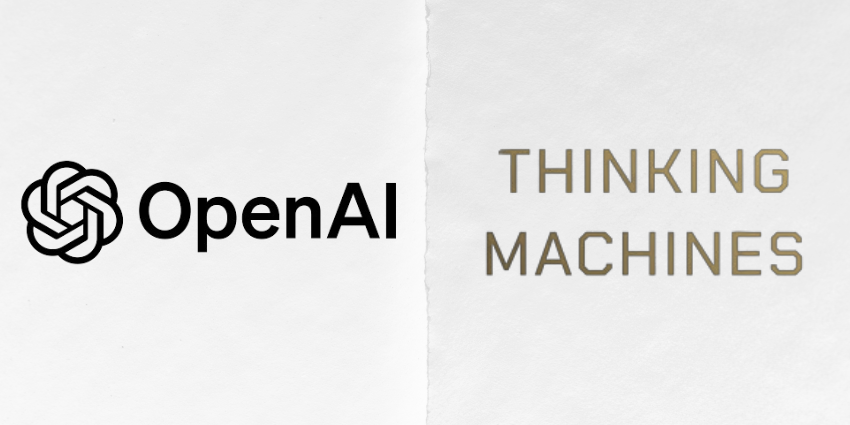Mira Murati, who served as OpenAI’s Chief Technology Officer until October 2024, has emerged from months of speculation to announce her new venture, Thinking Machines Lab.
The startup will aim to develop more customisable and accessible AI systems that can be tailored to individual needs and goals. The announcement comes after Murati’s departure from OpenAI, where she briefly served as interim CEO during a period of leadership turbulence, earning recognition for her steady hand during a challenging transition.

Open AI itself made headlines recently after being subject to an audacious low-ball offer from Elon Musk.
Murati’s Star-Studded Team
Murati has assembled what industry observers might call a dream team of AI talent, bringing on board OpenAI co-founder John Schulman as chief scientist and former OpenAI chief research officer Barret Zoph as CTO. Thinking Machines has already attracted 29 employees from leading AI organisations including OpenAI, Character AI, and Google DeepMind, which would seem to suggest fairly strong industry confidence in the new venture’s potential.
A Track Record of Innovation
During her six-year tenure at OpenAI, Murati played a pivotal role in developing some of the company’s most important projects. After
joining as VP of applied AI and partnerships in 2018, she was promoted to CTO in 2022, where she led the development of groundbreaking technologies including ChatGPT, DALL-E, and Codex, which powered early versions of GitHub’s Copilot.
Her leadership was instrumental in bringing these technologies from research concepts to widely used applications, demonstrating her ability to bridge the gap between cutting-edge research and practical implementation.
Thinking Machines’ Vision
Thinking Machines Lab’s mission directly addresses what they identify as critical gaps in current AI technology. In their announcement, they highlighted the growing disconnect between rapidly advancing AI capabilities and the scientific community’s understanding of these systems.
They also pointed to the concentration of AI training knowledge within a small number of top research labs as a limitation on both public discourse and effective AI utilisation, suggesting a need for more transparent and accessible AI development practices. The company sees this knowledge gap as both a challenge and an opportunity to democratise AI technology.
The startup plans to focus on developing multimodal AI systems that can collaborate effectively with users across different levels of expertise. Unlike existing AI platforms, these systems aim to be more adaptable to individual user needs and capabilities.
Thinking Machines have also emphasised their commitment to AI safety; outlining comprehensive plans to prevent misuse of their models and share best practices for building safe AI systems with the industry. On a blog post, they emphasised their focus on creating “genuine value in the real world”, rather than simply optimizing existing metrics.
Growth and Future Prospects
While reports have suggested that Murati was in discussions to raise over $100 million in venture funding, the company has maintained discretion about their financial details.
They are actively recruiting for several positions, including machine learning scientists and engineers, as well as a research program manager to help fuel their ambitious growth plans.
Murati’s venture joins a growing field of AI startups founded by former OpenAI executives, including Ilya Sutskever’s Safe Superintelligence and Anthropic.








